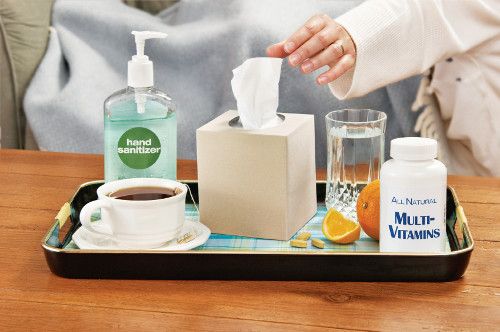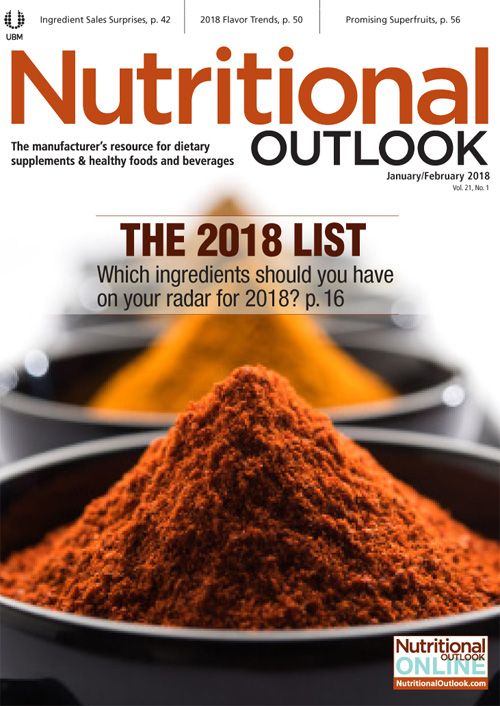Name Brand Ingredients for Immune Health Dietary Supplements
An update on branded immune-support ingredients.
Photo © iStockphoto.com/Janine Lamontagne

What’s in a name? For branded immune-support ingredients, the answer may be: quite a lot. After all, you can’t fault foggy-headed consumers for letting their eyes glaze over at the indistinguishable bottles of C, zinc, and Echinacea crowding immune-supplement shelves. In such an environment, any ingredient that can shout above the din is bound to gain an advantage.
But brand backing brings more than just name recognition; it can also mean having the full support of a marketing and research team to help your product-and the branded immune-health ingredient it contains-stand out even brighter.
As Mike Bush, CEO, Ganeden (Cleveland), puts it, “Consumers are taking a more proactive approach to their health, reading labels more closely and doing research on specific ingredients fortified into products.” They take these measures because they’re looking for quality, particularly when addressing their and their family’s immune health. “Functional immune ingredients that are recognizable and have research showing health benefits reassure these consumers.” And more often than not, it’s a brand name that sparks that recognition.
Educational Advantage
Branded health ingredients are nothing new to dietary supplements, and that’s as true of immune-support formulations as it is of any other wellness category. But, says Elyse N. Lovett, MBA, MS, marketing manager, Kyowa Hakko USA, Inc. (New York City), “There’s definitely more recognition among consumers for branded immune support lately.”
Why? “I believe that consumers want to know where their ingredients come from and why they work,” she says. Social media’s sway, as well as what she calls “millennial marketing and ‘influencer’ marketing” offer branded immune-support ingredients the opportunity to make a name for themselves-literally- “and let consumers educate themselves on the ingredients that are out there.”
The availability of these educational resources is a core advantage of brand backing. “Branded ingredients help consumers understand exactly what a product is fortified with,” Bush notes, “and allow manufacturers to show specific research and information on those ingredients, which generic ingredients can’t always provide.”
Prove It!
Lovett agrees. “Most branded ingredients are backed by significant human clinical research,” she says. And clinical research that produces statistically significant results, especially in the immune category, is essential to making efficacy claims, “as well as claims that the consumer understands.”
Such has been the case with probiotics, which have witnessed a burst in popularity not just for the digestive benefits that established their reputation, but also for newly elucidated effects on immunity. Nonetheless, the probiotics category comprises a broad and diverse range of strains, and as Bush says, “all research and health benefits are strain specific.”
For example, his company’s GanedenBC30 (Bacillus coagulans GBI-30, 6086) ingredient has research demonstrating its immune-support benefits, Bush says, “while other probiotic strains may not have any effect on the immune system at all. So, we always stress the importance of strain specificity and branded options.”
As Lovett says, “Research is always top of mind with any ingredient. But branded ingredients backed by multiple human clinical research studies that can support efficacy claims will have huge benefits.”
And if the company spearheading that research is also communicating scientific findings effectively, the more data the better. Notes Lovett, “Most companies offer marketing advantages to branded ingredients. Consumer awareness is huge, so getting the brand name out there into the market and into the right places and to the right demographics is key.”
Probiotic Foothold
In the immune-health arena, we see branding’s returns accrue to multiple ingredients, gaining them the foothold they need to carve out a place for themselves.
Consider, once again, what’s happened with probiotics. “Consumers originally associated probiotics with digestive health,” Bush points out. “But because 70% of the immune system is located in the digestive tract, there’s a growing understanding that probiotics can have immune health benefits, as well.” Strain-specific research shows that strains like Ganeden’s Bacillus coagulans “do support immune health, leading to an increase in product launches promoting immune health instead of just probiotics or digestive health.”
The influx of new probiotic-fortified children’s products illustrates the difference that branding makes. As Bush points out, “Probiotics’ immune health benefits resonate strongly with parents.” Indeed, Ganeden’s 2017 SSI consumer survey found that 87% of parents would purchase a product for their children were it probiotic-fortified.
Thanks to their interest, Bush says, 2017 saw a number of BC30–fortified product launches geared toward children, including NurturMe quinoa infant cereal, ancient grain cookies and quinoa squares, Feel Better Pops popsicles, Little Duck Organics fig bars, Farm&Oven bakery bites, and Sneakz vegan protein powder.
For consumers farther up the age spectrum, Megan De Stefano, global probiotics marketing leader, DuPont Nutrition & Health (Wilmington, DE), points out that her company’s Howaru Protect Adult (Bifidobacterium lactis Bl-04) is “clinically documented” to help active adults stay healthy, and that it’s optimized to maintain natural immune defenses.
In a recent clinical trial1 researchers had 100 healthy adults supplement with the probiotic or a placebo daily for four weeks, after which they applied rhinovirus to the subjects’ nostrils to induce mild colds. Over the five days following application, subjects in the probiotic group had less rhinovirus in their nostrils than those in the placebo group and exhibited changes in their innate immune response that didn’t occur with the placebo. The conclusion, says De Stefano: the probiotic supports the immune system in the nasal passages and delays the onset of respiratory tract illness versus placebo.
Other Options
Branded probiotics aren’t the only immune ingredients getting attention. More than a dozen clinical studies back the ability of the Wellmune brand of proprietary beta 1,3/1,6 glucan from baker’s yeast to strengthen general immune health regardless of age, says Don Cox, senior vice president of research and development for the brand (which is distributed by Kerry Group).
A recently published study2 that used exercise stress to modulate the immune system of adult subjects taking either the beta-glucan or a placebo found that the Wellmune-consuming participants maintained elevated levels of cytokines during exercise stress, significantly higher circulating monocyte and T cell levels and superior recovery capability compared to the placebo participants, Cox says-all of which suggests that the supplement gave their immune systems a boost in avoiding common post-exercise suppression.
“The findings are also consistent with others published on the ingredient about its general ability to improve immune health, reduce the incidence of upper respiratory tract infection (URTI) symptoms and improve the overall sense of wellbeing in those undergoing physical or lifestyle stress,” Cox says. “For example, a new pilot study3 published earlier this year in the clinical journal Nutrition shows that consuming Wellmune led to fewer URTIs and reduced the duration of URTI symptoms in older adults.”
For its part, Lovett’s company manufactures a branded glutathione supplement called Setria made using a patented fermentation process “that yields high quality and purity,” Lovett says- “key in any formulation.”
While its benefits run from detox to sports performance, it supports immune health not only as an antioxidant that protects cells from the stressors that make us sick, but by helping our bodies maintain sufficient numbers of functioning T-cell lymphocytes, and by stimulating the production and activity of natural killer (NK) cells, according to the company’s website.
These examples by no means constitute an exhaustive list of the branded immune ingredients out there-which means that manufacturers not only have plenty of options to choose from, but face the task of wading through them all.
But they don’t have to do it alone. When auditioning branded ingredients, “We recommend that manufacturers select a supplier that can provide marketing and formulation assistance, as well as research on all ingredient offerings,” Bush says. “The relationship between a manufacturer and supplier should be a partnership, with joint efforts in all steps of the launch process-from fortification to educating consumers.
Also read:
Immune-Health Ingredients Aim for Food, Drink, and Other Delivery Systems at SupplySide West
Probiotic Blend Supports Immune Health in New Study
Ganeden’s New Staimune Immune-Health Ingredient Is “Probiotic Derived,” But It Is Not a Probiotic
References:
1. Turner RB et al., “Effect of probiotic on innate inflammatory response and viral shedding in experimental rhinovirus infection – a randomized controlled trial,” Beneficial Microbes, vol. 8, no. 2 (2017): 207-215
2. McFarlin BK et al., “Oral supplementation with baker’s yeast beta glucan is associated with altered monocytes, t cells and cytokines following a bout of strenuous exercise,” Frontiers in Physiology, vol. 8 (October 2017): 786
3. Fuller R et al., “Yeast-derived beta 1,3/1,6 glucan, upper respiratory tract infection and innate immunity in older adults,” Nutrition, vol. 39-40 (2017):30-35

Prinova acquires Aplinova to further increase its footprint in Latin America
April 7th 2025Prinova has recently announced the acquisition of Brazilian ingredients distributor Aplinova, which is a provider of specialty ingredients for a range of market segments that include food, beverage, supplements, and personal care.

























